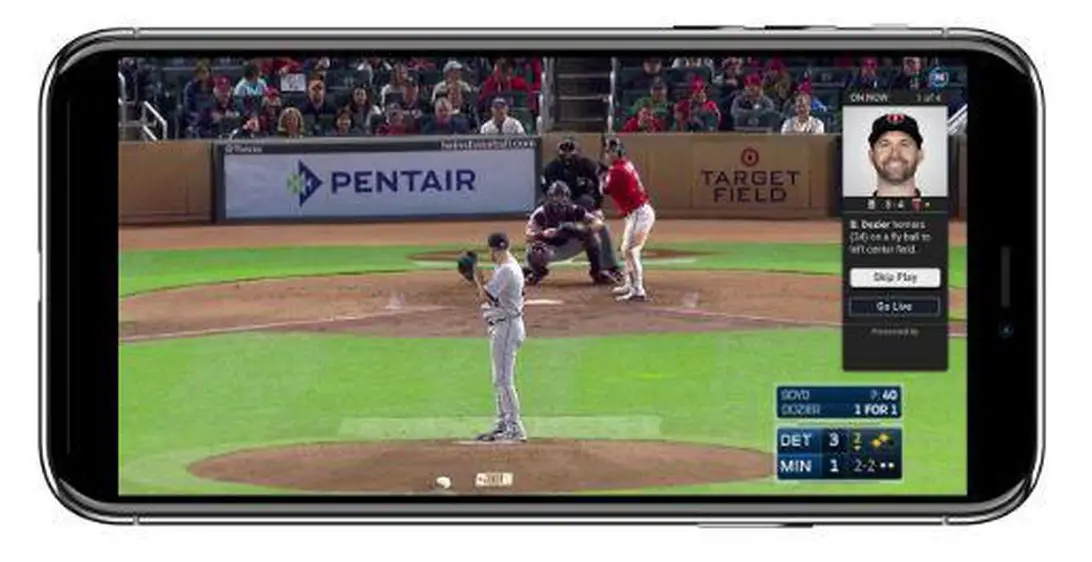By Phillip Swann
The TV Answer Man –Follow on X.
Former editor of 4 TV magazines. Author of TV Dot Com.
TV Answer Man, we live in Iowa and we want to watch the Cardinals but the games are blacked out on MLB TV even though we live hours away from the Cardinals stadium. Can you explain how a VPN works and whether it could eliminate the blackouts? — Todd, Des Moines, Iowa.
Todd, the 2024 MLB spring training season has just begun and fan frustration over in-market blackouts during the regular season on MLB TV is already at a fever pitch. You pay $149.99 for the MLB TV package and you can’t even watch your home team! And in some markets, such as Las Vegas and parts of Iowa, there are multiple teams blacked out. There’s even a blackout of the San Francisco Giants and Oakland A’s in Guam!
See more news and TV tech features at TVAnswerMan.com.
The Virtual Private Network, or VPN, can beat the blackouts, but there are a number of questions regarding its legality. Let me try here to put those questions to bed now before the regular season begins with the Dodgers and Padres in Korea on March 20-21.
Is Using a VPN to Avoid MLB Blackouts Legal?
You can avoid in-market blackouts on MLB TV by using a VPN, which is a software that you can download that enables you to use an IP address different from your own.
For instance, if you live in Des Moines, Iowa, you could insert an IP address supplied by the VPN company that would say you live in Denmark. Then, you could subscribe to the MLB.TV online package and watch the St. Louis Cardinals (and other teams currently blacked out in Iowa) because the IP address wouldn’t say Iowa.
What Does MLB Say About VPN Use?
Two years ago, I asked a MLB spokesperson three questions regarding VPNs and MLB.TV:
1. Is MLB opposed to the use of VPNs to watch MLB.TV?
2. Has MLB ever sued a MLB TV subscriber for using a VPN?
3. Has MLB ever sought criminal charges against a MLB TV subscriber for using a VPN?
After four separate inquiries over a week, the spokesperson finally answered:
1. No comment.
2. No.
3. No.
For the first time, MLB acknowledged it had never tried to sue or prosecute anyone for VPN use and the league didn’t even have a position on whether it opposes the use of VPNs. Since that interview, there is no indication that the league’s position has changed nor prosecuted or sued someone who has used a VPN while watching MLB TV.
This runs counter to the public perception that MLB is trying to crack down on VPN use and is prepared to use the courts when necessary. This is not to suggest that MLB is saying you should use a VPN. (The pay TV services that pay handsomely to carry regional sports channels wouldn’t appreciate that. If everyone used a VPN for MLB TV, they wouldn’t need to subscribe to the pay TV services.) But the league certainly isn’t telling you not to use a VPN.
In the past when addressing this topic, I’ve noted there’s also an ethical question here. By using a VPN, you are clearly attempting to “circumvent” a blackout restriction, which is against the MLB TV rules. But the league’s current neutral stance on VPN use would seem to soften that concern.
Before you start searching for a VPN, however, allow me to caution that I am not an attorney, and this article does not constitute legal advice in any way, shape or form. I also cannot guarantee that the VPN will work in your home with your streaming devices. But many fans have posted comments on social media, and in e-mails to yours truly, that they have been successful in using a VPN to avoid MLB blackouts. So I think this information is very valuable to cord-cutters anxious to watch their home team during the 2024 season.
If you’re unsure how to install a VPN, I would recommend reading this handy guide from PC Magazine.
Todd, hope that helps. Happy viewing and stay safe!
Have a question about new TV technologies? Send it to The TV Answer Man at swann@tvanswerman.com Please include your first name and hometown in your message.
The TV Answer Man is veteran journalist Phillip Swann who has covered the TV technology scene for more than three decades. He will report on the latest news and answer your questions regarding new devices and services that are changing the way you watch television. See the bio for Phillip Swann here.


